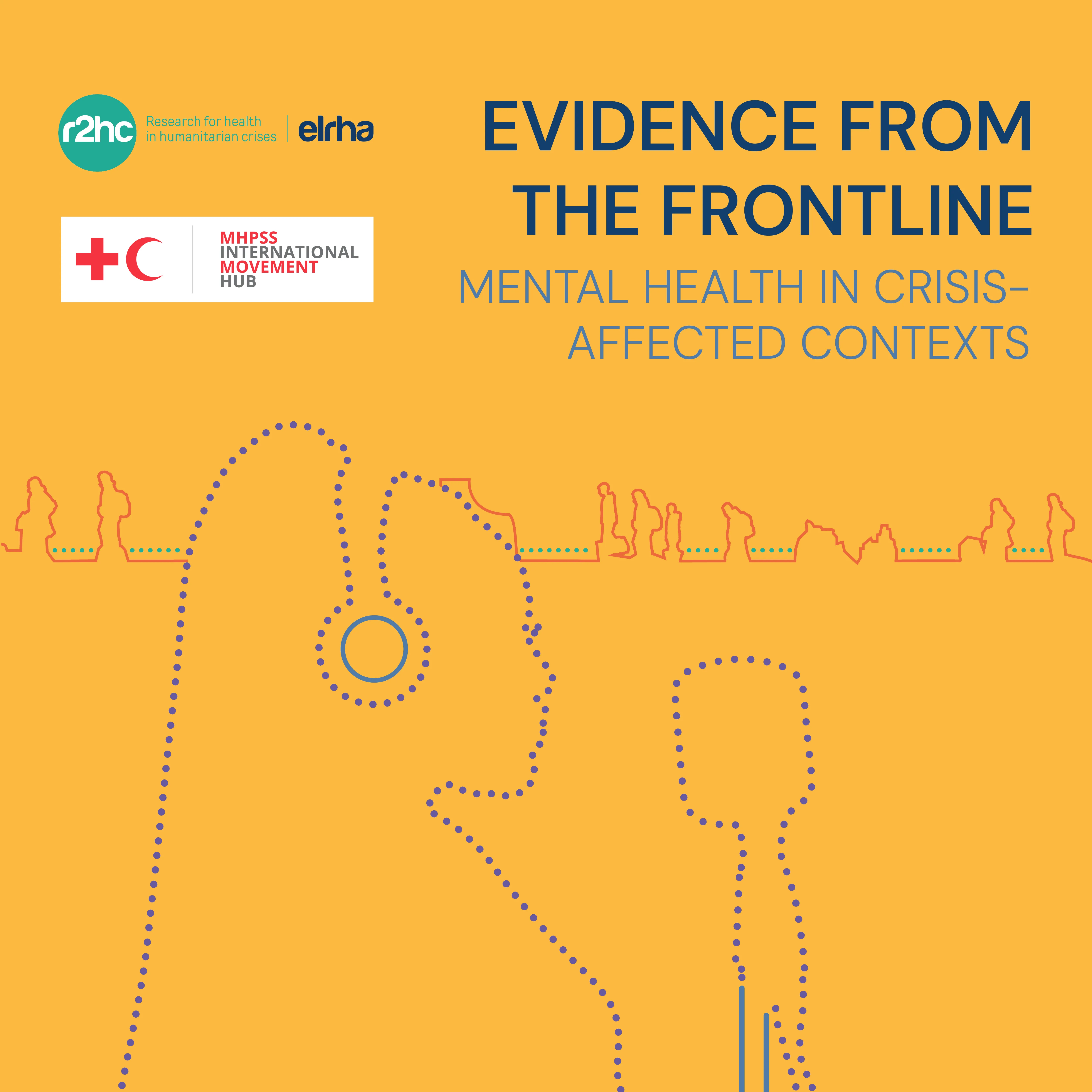Evidence from the frontline: Mental health in crisis affected contexts, episode 1: Self-Help Plus

Listen to the podcast here or subscribe to Evidence from the frontline: Mental health in crisis affected context on Apple Podcast, Spotify, or wherever you find your podcasts.
In this first episode of Evidence from the frontline: Mental health in crisis affected contexts, we’ll be talking about Self-Help Plus(SH+), a stress management course developed by the World Health Organization (WHO) for delivery to large groups.
SH+ is based on a form of cognitive behavioural therapy and provides training in stress management to reduce psychosocial distress and improve coping. There are two key outputs relevant to practitioners: the group-based intervention with audio files, and the Doing What Matters book, which has been translated into many languages and a web application. SH+ has been widely taken up in humanitarian settings such as Ukraine, Uganda, and South Sudan. To explore this topic, Sarah Harrison, Acting Director of the Red Cross Red Crescent Movement MHPSS Hub, interviews Ken Carswell and Lidiia Kasianchuk. Ken is a Mental health Specialist from WHO and Lidiia is a psychologist from Ukraine with experience of implementing Self Help Plus.
Sarah, Ken and Lidiia unpack what practitioners need to know about implementation of both the book and group-based SH+ approaches, including field use and adaptation experiences; the impact of SH+ on service users and staff (the role of group facilitators is key). The importance of practice-based evidence and community engagement are explored, and the need for monitoring and evaluation, as well as more rigorous research to inform scaling and to explore motivation aspects.
Related resources
Key resources for practitioners
- Psychological interventions implementation manual: integrating evidence-based psychological interventions into existing services
- Self-Help Plus (SH+): a group-based stress management course for adults
- The Self-Help Plus (SH+) training manual: for training facilitators to deliver the SH+ course
- Self-Help Plus (SH+) online orientation course
- Doing What Matters in Times of Stress
Research and further reading
- Self-Help Plus (SH+): a new WHO stress management package
- Guided self-help to reduce psychological distress in South Sudanese female refugees in Uganda: a cluster randomised trial
- Effectiveness of a WHO self-help psychological intervention for preventing mental disorders among Syrian refugees in Turkey: a randomized controlled trial
- Effectiveness of a WHO self-help psychological intervention to alleviate stress among healthcare workers in the context of COVID-19 in China: a randomised controlled trial
- Effectiveness of Self-Help Plus in its digital version in reducing anxiety and post-traumatic symptomatology among nursing home workers during the COVID-19 pandemic: secondary analysis of randomised controlled trial data
- Highlighting Complementary Benefits of Problem Management Plus(PM+) and Doing What Matters in Times of Stress (DWM) Interventions Delivered Alongside Broader Community MHPSS Programming in Zummar, Ninewa Governorate of Iraq
- “Doing What Matters in Times of Stress” to Decrease Psychological Distress During COVID-19: A Randomised Controlled Pilot Trial
Self-Help Plus was developed by the World Health Organization with extensive input and support from multiple partners. Please see the Self-Help Plus manual, DWM book, academic papers and other resources for acknowledgements and funding details. The original Self-Help Plus research was supported by our Research for Health in Humanitarian Crises (R2HC) and the EU Horizon 2020 programme.
Evidence from the frontline: Mental health in crisis affected contexts is a six-episode podcast mini-series produced in a collaboration between the MHPSS Hub and Elrha.
Designed for MHPSS practitioners working in humanitarian and crisis contexts, the series highlights impactful interventions and offers practical insights from experts in the field. It will explore critical topics including effectiveness, implementation, adaptation, integration into existing programmes, human resources, costs, and the importance of cultural and contextual relevance.